MercoPress. South Atlantic News Agency
Stories for 2011
-
Saturday, December 10th 2011 - 20:50 UTC
CFK ratifies model but calls for competitiveness from labour and corporations

Argentine President Cristina Fernández began on Saturday before Congress her second term with a seventy minutes speech strongly focused on domestic issues with clear messages to labour, corporations, the financial sector, the Judiciary but also a “fine tuning” pledge to continue with the current national, popular, inclusive economic development model.
-
Saturday, December 10th 2011 - 05:55 UTC
Argentina and Brazil agree to jointly promote trade and manufacturing
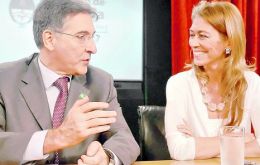
Argentina and Brazil agreed on Friday to “increase” in the “short term” regional trade in a shared strategy to address the consequences of the global crisis. The commitment was endorsed by Argentina’ Industry minister Debora Giorgi and her Brazilian counterpart Fernando Pimentel.
-
Saturday, December 10th 2011 - 05:54 UTC
Moody’s downgrades the debt of the three main French banks

Ratings agency Moody's downgraded the debt of BNP Paribas, Societe Generale, and Credit Agricole on Friday, citing deteriorating liquidity and funding conditions.
-
Saturday, December 10th 2011 - 05:52 UTC
IMF praise for Uruguay but warns about the need of labour flexibility
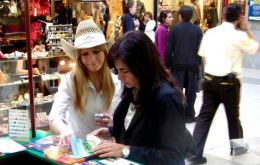
The IMF recommended Uruguay greater flexibility in the management of macroeconomic policy, ahead of unexpected changes in the international scenario.
-
Saturday, December 10th 2011 - 05:51 UTC
“I think I did the right thing for Britain”, says PM Cameron
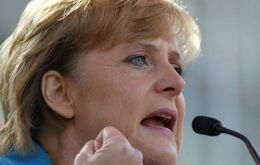
British PM David Cameron has defended his decision to block an EU-wide treaty change to tackle the Euro zone crisis, despite warnings it will leave the UK isolated.
-
Saturday, December 10th 2011 - 00:46 UTC
Five leaders miss CFK inauguration ceremony to be aired live in Youtube
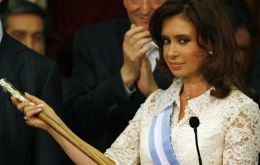
The presidents of Venezuela, Colombia, Peru, Ecuador and Mexico, Hugo Chávez, Juan Manuel Santos, Ollanta Humala, Rafael Correa and Felipe Calderón have cancelled their trips to Buenos Aires and won’t attend President Cristina Fernández inauguration ceremony on Saturday.
-
Saturday, December 10th 2011 - 00:44 UTC
CFK breaks tradition with new cabinet; metro and trains free ride on Saturday

Breaking away from tradition Argentine President Cristina Fernández will swear in her second term Cabinet at the Bicentennial Museum in Buenos Aires, a ceremony that by custom has been held in the White Room at Government House, Casa Rosada.
-
Saturday, December 10th 2011 - 00:43 UTC
Gibraltar votes for change; after almost 16 years opposition takes over
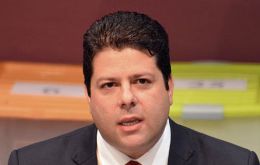
In a very close result the Gibraltar Socialist Labour Party (GSLP) Liberal Alliance were elected on Thursday into government with Fabian Picardo topping the poll.
-
Friday, December 9th 2011 - 07:16 UTC
November inflation in Brazil up 0.52% and 6.64% in last twelve months
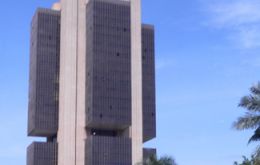
Brazilian consumer prices rose faster than expected in November. Inflation as measured by the benchmark IPCA index, quickened to 0.52% last month from 0.43% in October.
-
Friday, December 9th 2011 - 07:12 UTC
Euro rescue deal limited to 17-EU countries and with a March deadline

Attempts to rescue the Euro will focus on a deal among the 17 nations that use the single currency, French President Nicolas Sarkozy said early Friday.
